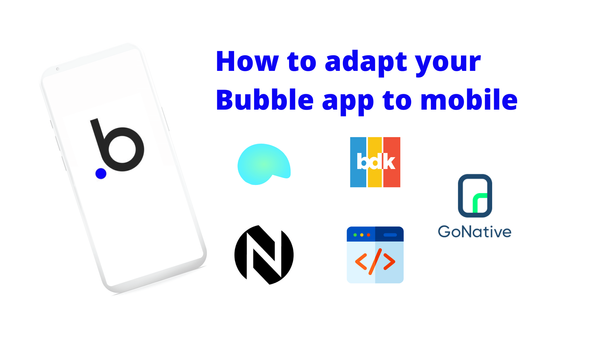If you’re looking to build a business or startup in 2022, you may have recognized the enormous challenges and shifts in consumer trends after major political and health events. Here is our list of the 10 Best Startup Ideas in 2022 for entrepreneurs and enthusiasts to keep up with these trends, as requested by major venture capital firms (VCs) like Andreessen Horowitz.
1. Social network
The “social” term was originally thought to be done. However, despite products from tech giants like Facebook, Instagram, or Twitter dominating the market, the pandemic brought about impressive growth for social network products. TikTok’s exponential growth—1 billion monthly active users as of 2021—made its parent company, Bytedance, the biggest unicorn in the world with a valuation of over $300 billion.
Besides traditional social networks, the market is open to startups implementing “social” features into existing solutions, like Venmo for payments and Spotify for music streaming. Pinduoduo reached a $5 billion valuation after just 5 years by implementing social features into e-commerce. The opportunities are vast and are waiting to be discovered.
Andreessen Horowitz, the iconic Silicon Valley investment firm, even has a page dedicated to seeing new social networks and projects.
2. Marketplace
The pandemic gave the opportunity for marketplaces to thrive as consumers shifted their behavior to online shopping. eBay and Amazon are the big names in the game, but numerous niche-serving e-commerce startups are growing to better serve customers. For instance, OpenSea is the most popular name in terms of trading NFTs. Due to the trend of tailoring the platforms for niche markets, VCs are continuously looking for such startups, even when the market is extremely competitive.
Moreover, a lot of other products in the e-commerce ecosystem are being rolled out, from payment services to print-on-demand services, supporting the e-commerce ecosystem.
3. Artificial Intelligence
From visual image processing to business intelligence, AI has always been trendy for tech startups, and it is not getting any less hot in 2022. Just in the first two quarters of 2021, more than $38 billion was invested in AI startups.
Fractal, a company serving Fortune 500 enterprises with AI-backed business intelligence solutions (e.g. marketing analytics, consumer insights, forecasting), received a $360 billion investment from TPG earlier this year, the highest-valuation investment in AI in recent years.
4. Blockchain
It would be a huge oversight not to include blockchain in this list. The world has been going crazy with bitcoin, game-fi, NFTs, and the metaverse in recent years. It’s not just a market for FOMO waves, though. Axie Infinity hit a $3 billion valuation in 2021, igniting the birth of a gazillion play-to-earn startups. Despite skepticism about the sustainability of blockchain-based startups, many people believe that models like DAO and Web5 will shape our future.
5. Fintech
Along with the growth of e-commerce and online shopping in general, fintech solutions found their way into exponential growth by supporting the e-commerce industry. Fintech spans from payment solutions to peer-to-peer loan solutions, allowing people and businesses to shop and trade on the internet with ease.
In order to grow globally and especially in the Europe region, Stripe raised another round of $600 million from a handful of different investors in 2021, bringing its valuation to a whopping $95 billion.
6. Agtech and New Food
Agtech (agriculture technology) and the new food sector saw a 128% growth in early-stage funding deals over five years, making it the fastest-growing sector. Foodpanda, a food delivery business, achieved a 430% growth in SMEs in 2021 and helped more than 30,000 shops digitalize in the pandemic.
7. No-code/Automation
Bubble raised $100 million in their most recent investment round, so it would be a shame not to mention this sector. Myriad no-code platforms were created following the trend, like Builder.ai and Appsmith.
Gartner saw potential in the trend when the pandemic spread in 2020 and forecasted that the market would see a 23% growth in 2021. Now, tools like Bubble are reshaping the operation and innovation of enterprises, opening up a lot of opportunities for decentralized digital transformation.
8. Remote work
It is not a surprise that remote work enablers are in higher demand than ever since even after the pandemic, employees are reluctant to return to the physical workplace and remote work became a permanent fixture. ClickUp raised $400 million at a $4 billion valuation in 2021 by helping hundreds of thousands of companies all over the world synchronize over the internet.
9. Health and wellness
Health is a huge global concern after the severity hit of the Covid-19 pandemic. Applications like Freeletics are helping millions of people exercise on their own, at home. Freeletics has now reached more than 53 million users worldwide.The global wellness market is valued at $1.5 trillion dollars, according to McKinsey, with an annual growth rate of 10 to 15%.
10. AR/VR
Last but not least, AR/VR startups are ubiquitous alongside blockchain startups in the hype of the metaverse. According to Crunchbase, the fourth quarter of 2021 saw more than $1.9 billion being invested in AR/VR companies.
AppliedVR, a leading startup in AR/VR applications for immersive therapeutics, raised $36 million in the Series B funding from investors like F-Prime Capital, JAZZ Venture Partners, Sway Ventures, and SVB Ventures.
How to get started on your idea
- Find a problem, create the solution
Startups are not just great products—they are great solutions that come from great problems. Using the startup business ideas above as a source of inspiration, you should go out there and interview people to find out what problems you can solve for them.
Sometimes, the founders are also the customers. Uber’s founders created the rideshare app after they couldn’t find a taxi to get home. Self-reflect and brainstorm, and you may find a great problem of your own to solve.
2. Make sure there is scalable demand
Once you’ve discovered a problem that needs to be solved, you need to make sure there are enough people experiencing that same problem who would be willing to try your solution.
Do a good amount of research with your potential audience, and make sure there will be meaningful demand for your product once it's released. You could do secondary research, where you look through others’ reports about the subject you are interested in, or you could do primary research and ask potential customers if they are really interested in your product.
3. Consider resource needs: time, money, people
Starting a new business depends a lot on the founders’ resources, not just fitting the idea to the market. Creating a digital product usually requires a lot less money than starting a brick-and-mortar business as you do not have to spend for renting, facilities, and so on. Many successful startups started with just a few engineers and little to no cost, like Shopify.
You should thoroughly consider these elements before investing in your idea:
- Time: How much time could you invest in the startup every day? The success of a startup is heavily dependent on the effort that the founders can put into it.
- Money: Make sure that you have enough “runway” (money needed for startups to survive for a specific period of time). Startups usually have to make sure they have enough runway for 12 months without extra investment.
- People: Great products come with great teams. Rarely can anyone build a huge business on their own, and numerous startups failed due to misaligned teammates or internal conflicts. You need to make sure that you have resourceful, knowledgeable, and enthusiastic teammates by your side on the challenging adventure of launching a startup.
4. Write a business plan
Now it’s finally time to write out all your ideas, strategies, and execution plans. This will later guide you through the madness of the startup world, help you focus on the important things, and also provide a baseline as you pitch to your investors.
Lengthy, detailed business plans are more commonly created for huge enterprises. For a startup, a short, simple pitch deck is preferable for external communication. The pitch deck should summarize the customers’ pains, the solution, the product, the team, and the plan. This guide from YCombinator should help you navigate through the essentials.
For internal planning, an Agile plan is recommended. Being Agile helps startups quickly pivot to adapt market feedback. This prevents time waste from research and planning that hingeon early-stage assumptions of the market, which are often wrong.
5. Develop your MVP
Come up with a great solution to a problem? Check.
Validate the idea? Check.
Write a plan? Check.
Now it’s finally time to turn your vision into a real product. If it’s a tech product, you have a few options: Learn how to code on your own, which will take a lot of time, or outsource software developers, which will cost a lot of money.
Thankfully, no-code tools like Bubble are empowering people to build their ideas into dynamic web apps without the need for code. Users can sign up for free and access paid plans starting at only $25/month to get more features and launch their apps. Many Bubble founders have been able to release fully functional MVPs in as few as 4 weeks, and some have gone on to top incubators and raised millions in venture capital funding.
The Smart Path to Startup Success
Observing trends is a really important task for entrepreneurs to enhance their market sensitivity and know-how. Many startups succeed due to great market observation and prediction of consumer trends. However, the most important thing when creating a new business is to actually fulfill the market needs. Trends come and go, and it’s important to avoid over-investment in seemingly attractive market trends if you want to make a truly valuable startup.
About Bubble
Bubble is a leader in the no-code movement. Bubble offers a powerful point-and-click web editor and cloud hosting platform that allows users to build fully customizable web applications and workflows, ranging from simple prototypes to complex marketplaces, SaaS products, and more. Over 2 million users are currently building and launching businesses on Bubble – many have gone on to participate in top accelerator programs, such as Y Combinator, and even raise $365M in venture funding. Bubble is more than just a product. We are a strong community of builders and entrepreneurs that are united by the belief that everyone should be able to create technology.




